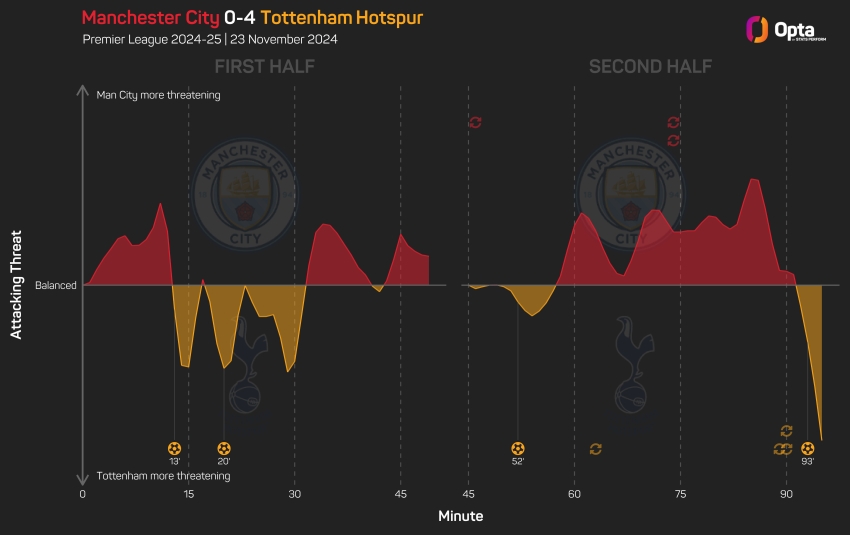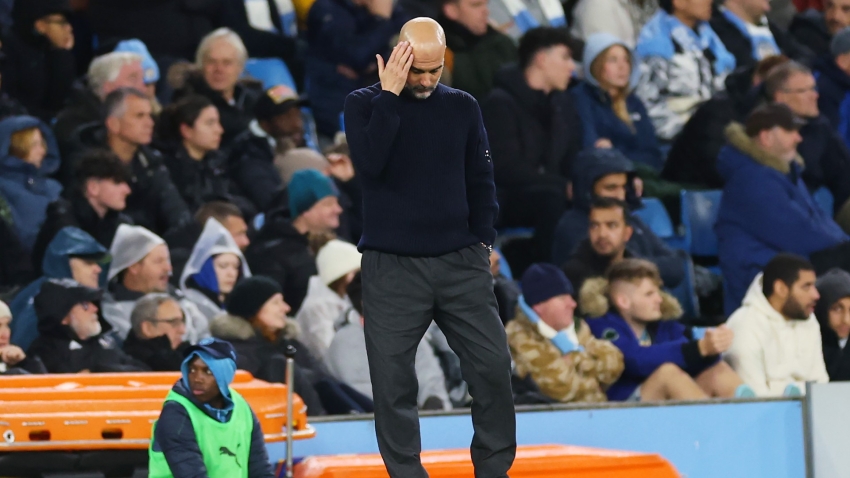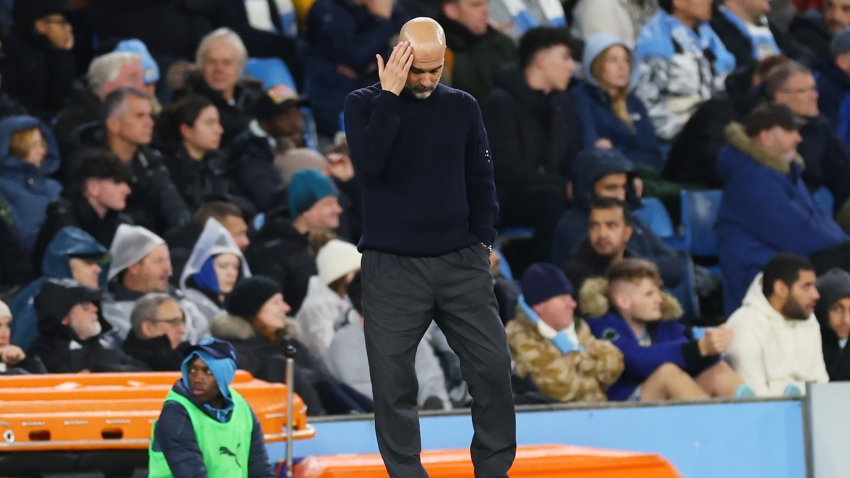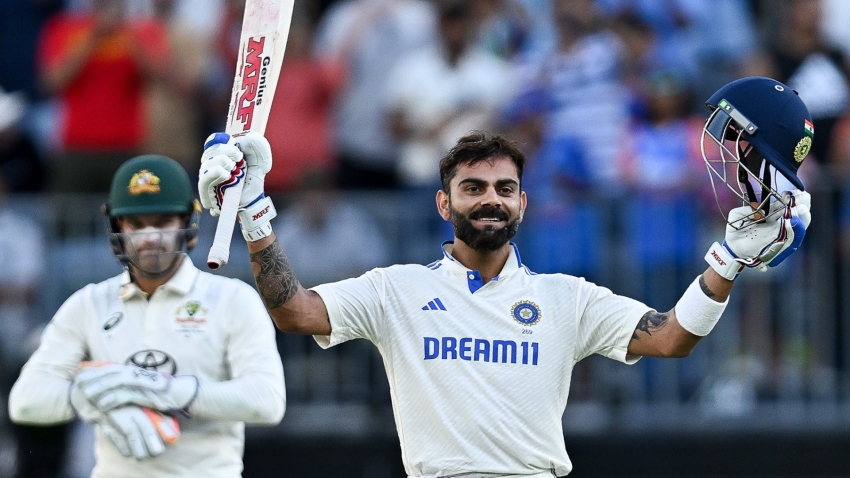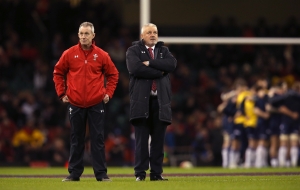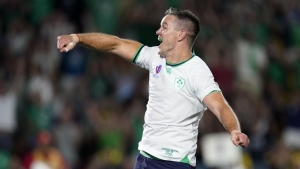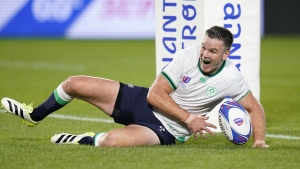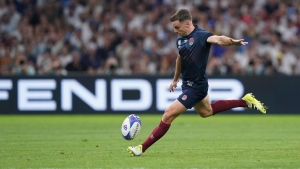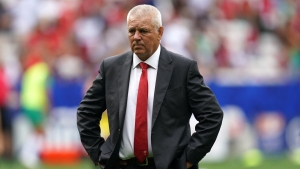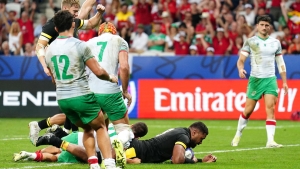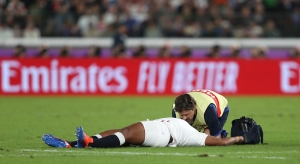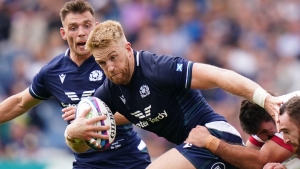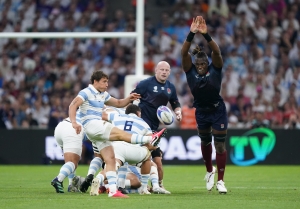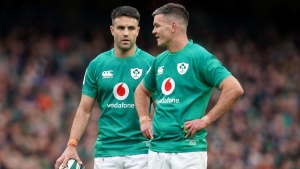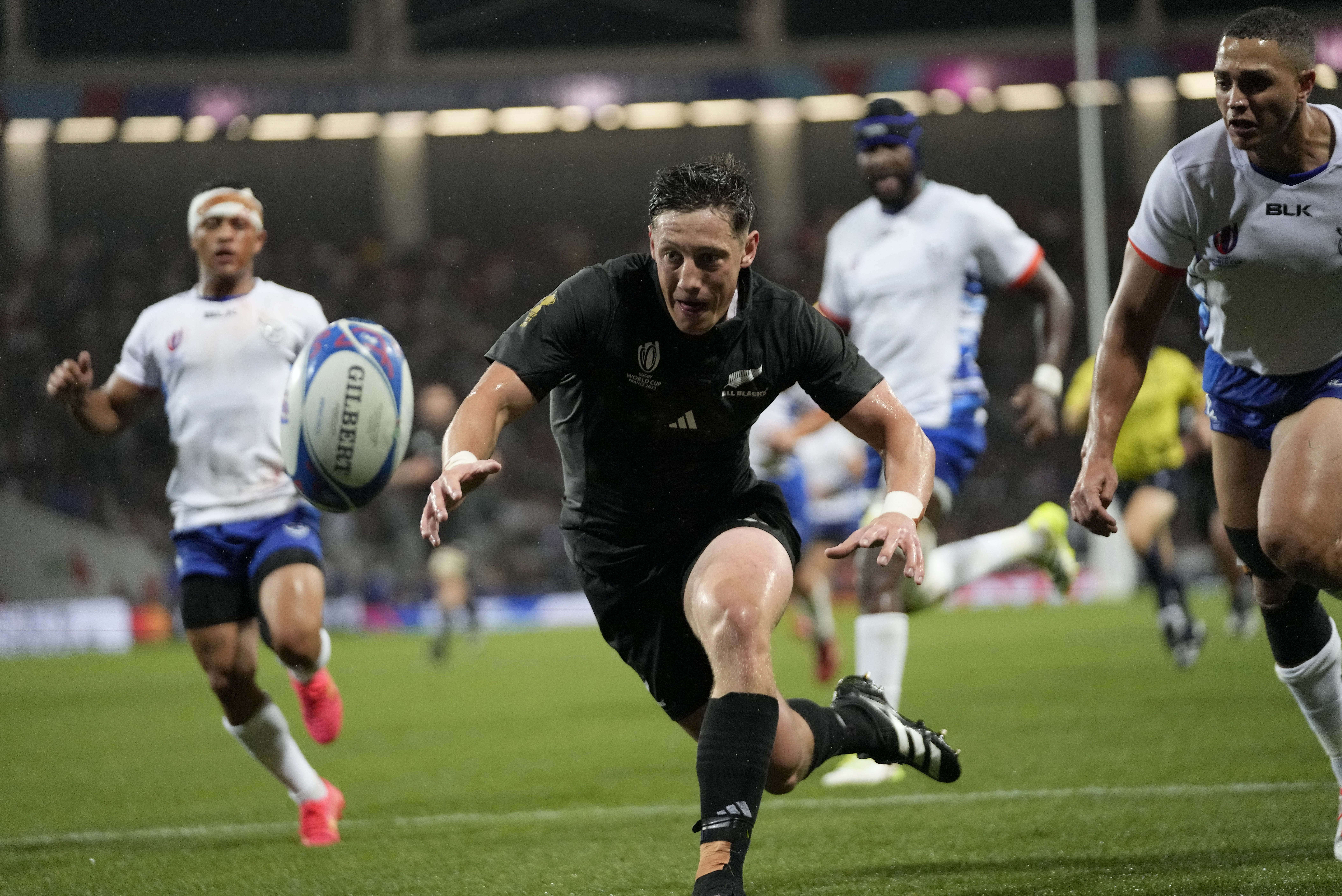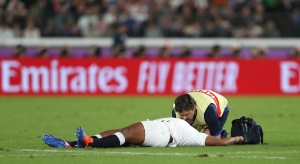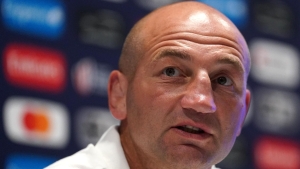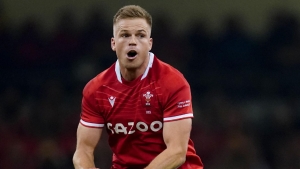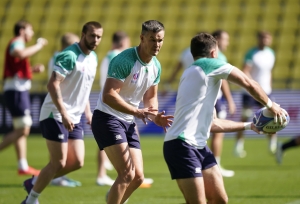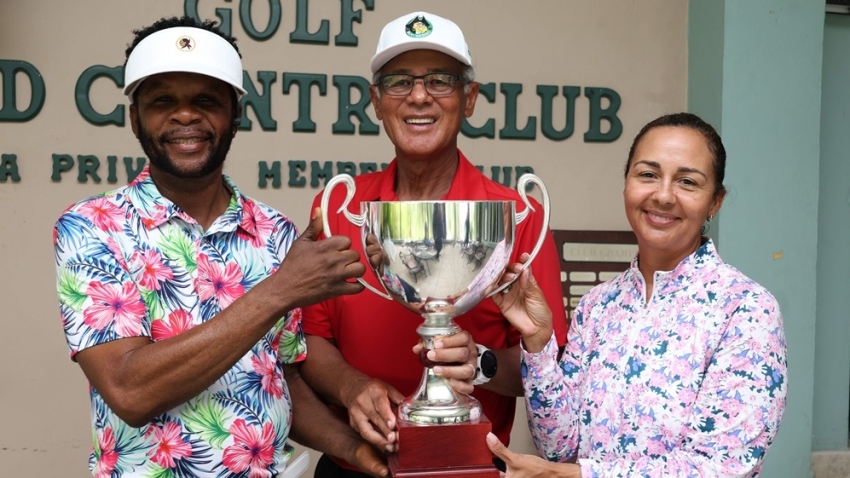Wales boss Warren Gatland declared it a case of “job done” by beating Portugal 28-8 at Stade de Nice and taking another step toward the Rugby World Cup quarter-finals.
It was not pretty at times, and Wales only claimed the bonus-point try they coveted when number eight Taulupe Faletau scored in the dying seconds, but Gatland’s team now have 10 points from 10 in Pool C.
“If someone said you would have 10 points from the first two games, we would have been pretty happy with that,” Wales head coach Gatland said.
“Look, there were aspects of today where we probably tried to play a little too much rugby early on and didn’t play a bit more territory and be a bit more direct.
“But some of those players haven’t had a lot of rugby. I just said to them in the changing room, ‘job done’. We’ve got the five points.
“They had thrown everything at us in those first 20 minutes. They probably didn’t have the same opportunities in the second half in terms of putting us under that sort of pressure.
“When we ran hard and won those collision, that is when we looked dangerous. Probably at times we were a little bit lateral.
“It’s good we have given everyone in the squad an opportunity and some rugby. We have a little bit more time in terms of preparation before Australia and we can start looking forward to that game.”
Gatland confirmed flanker Tommy Reffell was suffering from a tight calf muscle that saw him pulled out of the starting line-up just minutes before kick-off, with Jac Morgan called up.
“Tommy said his calf was a bit tight,” Gatland added.
“I think he was still quite keen to take the field, but if he pulled that calf, that would have been his World Cup over.
“To put Jac in as a straight replacement with very limited preparation, I thought he was good.”
Gatland’s much-changed side struggled throughout for control and fluency in the contest, the highlight of which was Portugal’s attacking flair.
Wing Louis Rees-Zammit, captain Dewi Lake, Morgan and Faletau scored tries, while Leigh Halfpenny kicked three conversions and Sam Costelow landed one, yet a vast improvement will be required against Australia in Lyon next weekend.
Portugal gave as good as they got for large parts of the game and they undoubtedly deserved more than flanker Nicolas Martins’ try and a Samuel Marques penalty.
Their exciting back division stretched Wales’ defence in all directions, although wing Vincent Pinto blotted the copybook when he was red-carded late in the game following a bunker review after his boot caught Josh Adams in the face.
Asked if he was surprised by Portugal’s physicality, Lake said: “No, I don’t think we were surprised as we had done our homework on the team that we were facing.
“We understood what they were going to bring to the table from a physicality standpoint. Gats spoke in the week about them being a mini-Fiji in terms of an off-load game.
“They’ve got players who want to snipe and want to run. In terms of physicality, we won that battle over 80 minutes.”
Portugal lost 102-11 when they last played Wales in 1994, although captain Tomas Appleton struggled to mask his disappointment at the latest outcome.
“We really wanted to win this game. We really worked hard for that,” Appleton said.
“We lost many areas of the game, we didn’t have a solid scrum, we made mistakes in the backs and when we are playing at this level we get penalised and we suffer with those mistakes.
“We couldn’t quite show the rugby that we have, the good level of fast rugby we can play, and at the end of the day we are frustrated.
“We are not here to just be a presence, we are here to compete and win. When you are playing at this level you have to be cool-headed, and I think a lot of times we made bad decisions.”









